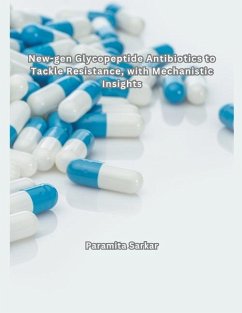Bacterial infections are common, yet deadly, causing various chronic diseases such as diarrhoea, pneumonia and other respiratory infections, endocarditis, skin and soft tissue infections, sepsis etc. With the prevalence of antimicrobial resistance (AMR) rising, treatment of infections caused by drug-resistant pathogens has become more difficult. AMR poses such a serious problem that the World Health Organization (WHO) has declared it as one of the greatest threats to human health. Multidrug-resistant infections are either hospital-acquired or community acquired, and currently claim around 700,000 lives per annum. In developed countries like the US, about 2.8 million people suffer from drug-resistant infections resulting in nearly 35000 deaths annually. Antimicrobial resistance is very often reported in some of the most common human pathogens like Staphylococcus aureus, Enterococcus sp., Enterobacteriaceae such as Salmonella spp., Klebsiella spp., Escherichia spp., Pseudomonas spp. and Acinetobacter spp. Gram-negative bacteria like Klebsiella spp., Escherichia spp., Pseudomonas spp. and Acinetobacter spp., which are more difficult to treat, appear to have become more invincible with the emergence of the numerous metallo-β-lactamases (MBLs) such as New-Delhi metallo-β-lactamases (NDM-I-I4), Verona-integron-borne MBLs (VIM) and Imipenemases (IMP). various phases of clinical trials. Among these, 32 antibiotics are effective against the priority pathogens listed by WHO, 12 against Mycobacterium tuberculosis and 6 against Clostridioides difficile. 10 of these products are biological treatments that target Staphylococcus aureus, Pseudomonas aeruginosa and C. difficile. With such a limited clinical pipeline, new antibacterial agents are urgently required to keep up with the increasing prevalence of drug-resistant pathogens.





![Industrial Pneumonoconioses, With Special Reference to Dust-phthisis [electronic Resource] Industrial Pneumonoconioses, With Special Reference to Dust-phthisis [electronic Resource]](https://bilder.buecher.de/produkte/65/65544/65544547m.jpg)


